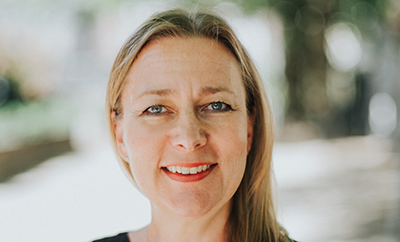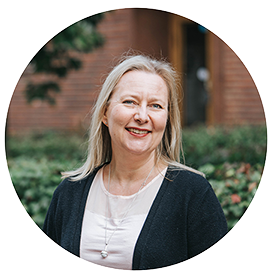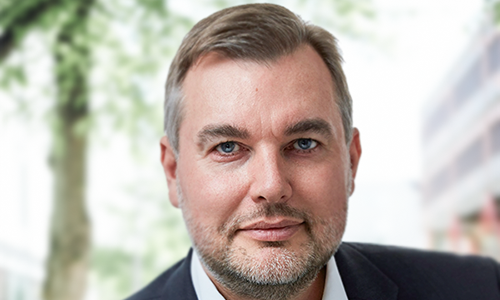
What occurs when people seemingly effortlessly and quickly arrive at an intuitive solution to a complex problem? Or just instantly know what to do or how to act, like Warren Buffet in an investor situation or Gary Kasparov faced with a chess problem?
Recent interdisciplinary research between neuroscience, psychology, sociology and physiology shows that science is finally at the point of discovering sufficient methods to study the inner workings of our brain and the connection between for example our heart and brain.
This is ground breaking as it helps us to better study intuition and unconscious thought and to understand their role for:
- decision-making
- solving of complex or wicked problems
- gaining moments of clarity
- insight
- creativity and innovation
- reaching a state of flow that maximises and optimizes our performance
In the growing complexity and increasing pace of change in the business world, these kinds of skills are crucial. So how can we as leaders benefit from these findings?
Everyday or expert intuition?
One important distinction that has been made is between everyday intuition and expert intuition. An example of everyday intuition is for example when your phone rings and you intuitively know who it is or even prior to that you are just about to call a person when he or she actually calls you up. Expert intuition is when you intuitively know that a solution to a problem in your area of expertise is simply right or wrong.
Expert intuition is built up from experience of up to ten years in any given field of expertise that gives your brain the needed tacit knowledge to draw intuitive conclusions without consciously accessing and rationally argue for or against a solution. It also means that you dare to trust your expert or strategic intuition in your decision-making – trusting your gut feeling.
Complex vs. simple problems
What about solving complex versus simple problems in different ways? When faced with a simple problem, like which toothpaste to buy, a conscious thought process comparing options leads to better results, but when faced with a more complex (like a chess-problem) or even wicked problem (like how to solve climate change), an unconscious thought process gives more accurate results, as it opens up for a broader perspective on the problem. This is because conscious thought has limited capacity – it works top down, while unconscious thought works bottom up, with a much greater capacity to integrate vast amounts of information.
According to unconscious thought theory, the best way to reach such intuitive problem solving is to first gain expert knowledge or information about a subject or a problem, and then distract yourself from the problem for a while to make room for unconscious thought, to then come to a decision or solution, basically based on your intuition or gut feeling.
The problem-solving process cannot solely rely on an unconscious thought process. Focused and conscious thought together with expert knowledge needs to precede the stage of unconscious thought for it to produce a more accurate solution than with only conscious thought. Unconscious thought is commonly evoked when you actually leave the problem for a while, e.g. when you take a walk, or while driving and letting your mind drift, or just before you fall a sleep (or while sleeping).
Sleep on it
The old saying to “sleep on the matter” has truth to it: in an experiment, when faced with a sequence of tasks that could be performed much faster if you detected a “secret rule” that governed the tasks, participants who slept eight hours before resuming the task, were twice as likely to detect the secret rule, than the participants who were taking an 8 h break without sleeping or going about their daily activities for 8 h. The important distinction is that while sleeping you don’t take in new information, but unconsciously reshuffle and re-associate the information you have. Sleep may help you abandon ineffective strategies, consider less obvious solutions, forget unimportant information and tease out patterns that exist but has gone unnoticed.
Reaching a state of flow
When it comes to performance, research shows that to enter a state of flow – a state when you are fully absorbed by the task at hand and become unaware of time passing and of external or internal disturbances – helps you access your expert intuition. To reach a flow state several issues come to play. Clearly a positive emotional state is crucial, while stress, anxiety or fear actually prevents you from reaching your intuition or entering a flow experience. Positive emotional states give room for being more creative, flexible, integrative and open to information. Constant distractions, like phone calls, e-mails, sudden noises, etc. can prevent you from entering a state of flow or snap you out of it, and performance suffers as a result. With constant distractions, the brain uses more energy to switch between thoughts than actually focusing on the task at hand thus being much less productive.
Listen to your heart
Finally, “listen to your heart” may have some deeper meaning to it. In positive emotional states the heart generates a harmonious coherent rhytm, while during stress and anxiety the rhythm is uneven and incoherent. Heart rhythm coherence is directly correlated with cognitive function and task performance, improvements in mental focus and attention, long term memory, and academic test performance. Researchers talk about a psychophysiological coherence when your heart rhythm, the brain, nervous system, and other bodily processes function on a heightened efficiency and in harmony. With today’s technology it is possible to monitor your heart beat and become more aware of when it is coherent and when not, and thus helps you reduce stress and increase your inner balance.
So, what should we do to become better decision-makers and problem-solvers, and to become more innovative, effective, and productive? There are no silver bullets. We need to build up our expertise through knowledge and experience. We need to get rid of unnecessary distractions; take time to focus and think; and time not to think consciously about a problem at hand. We need to sleep on things and we need to listen to our heart – in particular our heart beat. But mostly importantly, we need to become aware of and trust our expert intuition. If you’re an expert and your gut feeling tells you something, it’s probably right!
More on the topic in the Handbook of Intuition Research by Marta Sinclair.

